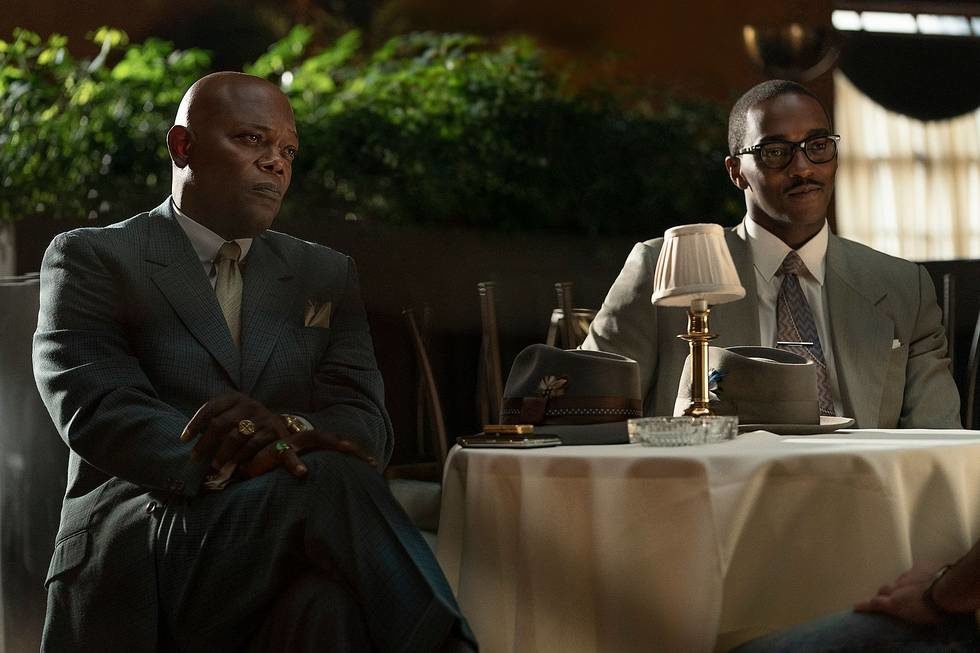The Banker

Samuel L. Jackson and Anthony Mackie star in THE BANKER. (Photo: Apple TV+)
Even during the most egregious instances of segregation and discrimination, people both black and white can generally find common ground with green.
That notion provides the backdrop for The Banker, a slick yet compelling true-life drama about two black financiers aiming to expand their real-estate portfolio amid racial injustice during the days of Jim Crow.
In 1950s Los Angeles, Bernard Garrett (Anthony Mackie) was making progress an apartment investor but faced barriers when trying to purchase more lucrative buildings or single-family homes in white neighborhoods.
He reluctantly partners with Joe (Samuel L. Jackson), a freewheeling veteran of the trade who’s both skeptical and intrigued by Bernard’s ambition. He recommends using Matt (Nicholas Hoult), a white contractor who works for Bernard, as the face of their shared interests going forward.
After providing adequate tutelage to their would-be negotiator, the scheme mostly works. Rather than reveling in the trio’s wealth, Bernard tries to tackle another challenge — buying a bank in his home state of Texas, where socioeconomic inequalities create bigger obstacles. “This is social activism, plain and simple,” Joe explains in exasperation.
As directed by George Nolfi (The Adjustment Bureau), the film demonstrates a working knowledge of commercial real estate and high finance, and even teaches a worthwhile lesson or two about taxation, valuation, loans, and interest rates.
Despite that, The Banker is hardly a lecture. It offers a solid visual re-creation of the period, and benefits from endearing performances and a convincing rapport between Mackie and Jackson.
The nerdy Bernard has an idealistic attitude toward gentrification and upward mobility, and it’s easy to root for him as a shrewd businessman and a forward-thinking entrepreneur. He’s practically a savant in financial matters, even if we don’t know how he got that way.
The revisionist screenplay leaves some contextual gaps, and tends to oversimplify Bernard’s ability to overcome prejudice and get his foot in the door with little more than a forced smile and some legal paperwork. It downplays some cloudy motives and ethical dilemmas.
However, even if some historical details are embellished in an effort to enliven some inherently dry subject matter, at least the film employs a different angle toward confronting a familiar struggle. When it shifts into more of a thriller in the final act, such an approach pays off.
Rated PG-13, 120 minutes.